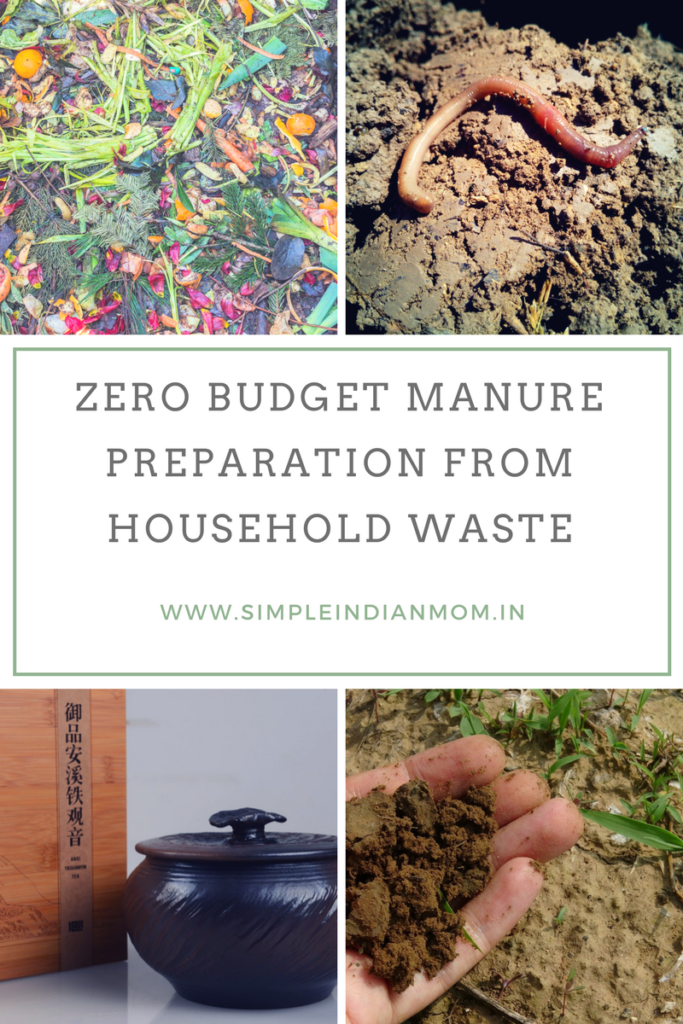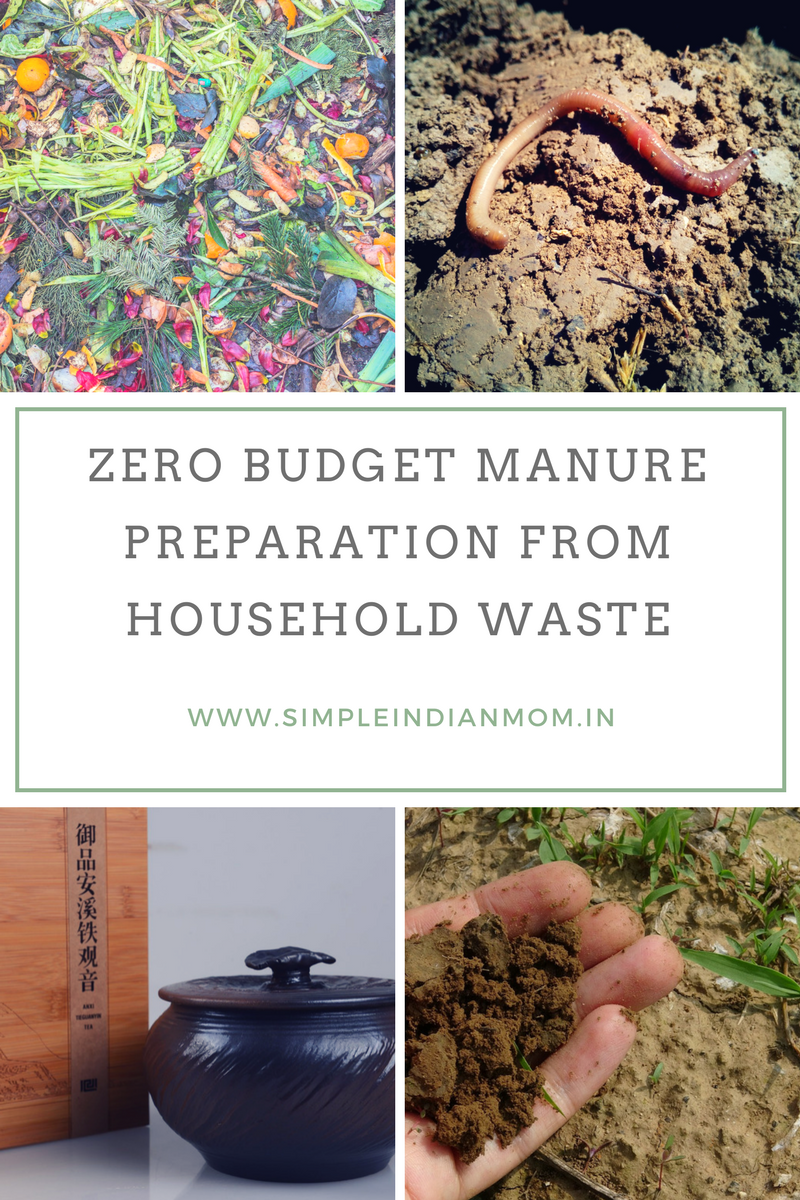
Did it ever strike to you how much household waste is generated in a day? Have you heard of Zero Budget Manure Preparation?
Every family will have daily kitchen wastes however small the family is and in countries like India where there is very less civic sense the disposal of kitchen waste is a big problem.
As per studies in big cities nearly 0.8kg of waste per day is generated from middle class residents and about 60% of the daily waste in households is made up of organic matter. So, what is composting and how to convert your home kitchen waste into rich manure?
Mulching – The Must To Save Water And Nutrients In Your Organic Garden
What Should Your Zero Budget Manure Have
A natural recycling process of the plant which enriches the soil is composting. It breaks down the organic matter using micro organism and small insects in the presence of air and water where the end product is called compost which is rich in nutrient.
Thus the kitchen waste can also be converted into a organic manure if proper environment is provided. The entire process of converting the kitchen waste into organic manure is done by nature with the help of micro organisms.
The entire process of composting is natural and can also be seen in forests where the piled up leaves decay naturally with the help of microorganism. Landfills are not ideal environment to create compost as it is made toxic by plastic and metal waste. Moreover it gets piled up every day and the layers are cut off from oxygen
There are 4 conditions required to create compost:
- Carbon that comes from dried leaves, sawdust, and paper
- Nitrogen from fruit and vegetable waste, coffee grounds
- The oxygen which comes from air
- The right amount of water.
Steps to Zero Budget Composting From Your Kitchen Waste
– Set a large earthen pot or a bucket and ensure that it has a secure-fitting lid and a 1/4 inch wire mesh wrapping for protection against pests. The bottom of the compost bin should be lined up with 1 inch of soil. Drill 4 – 5 holes around the container at different levels to let air inside.
– A compost container should be there in your kitchen to collect green waste for your compost pile. This can be vegetable peels, fruit peels, and small amounts of waste cooked food.
– Ensure that the kitchen waste are smaller in size as smaller the pieces, the quicker they compost. The waste from the kitchen container should be added to the bin every day.
– Collect some brown waste from your garden such as dry leaves, sawdust, wood clips, and plant trimmings and add it to your compost bin.
– Start adding food waste in layers alternating wet waste with dry waste and cover it with a plastic sheet to help it retain moisture and heat.
– Sprinkle some water if you think the pile is too dry and give it aeration every few days. The pile starts forming compost in a time period of 2-3 months. This compost is basically smelling of earth, dark brown crumbly and dry.
A family of 4 can easily reduce their waste from 1000kg to less than 100 kg every year by segregating, recycling and composting.
Expert Tip
You can use some microbial kits and worms to keep the process less smelly, you can get trust bin if you would want a completely smell free composting at home.
TrustBin for a family of 2 members(Set of two 14 ltrs bins)-Indoor compost bin for converting all kinds of kitchen food waste into fertilizer. Includes Compost bin, Bokashi compost maker, Detailed instruction manual. No foul smell, waste to compost in 4 to 6 weeks, no set up required, life time support. Worried on food waste? use our composter to feed your plants!
Also read
Coir Pith For Terrace Garden- A Nutritive Growth Substrate for Organic Veggies


